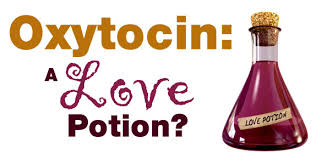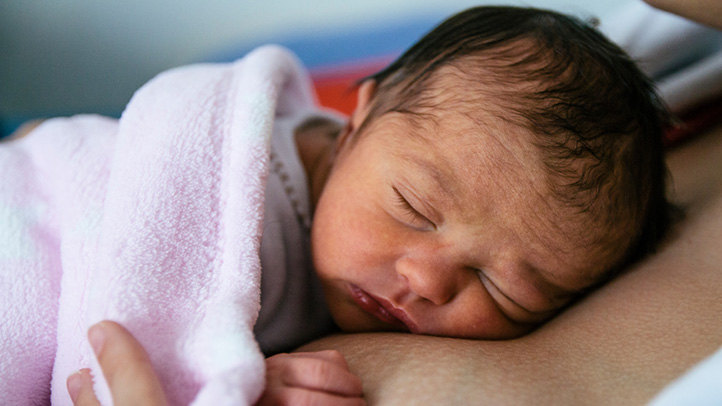I am going to talk about something many mums feel too ashamed to speak about and feel a deep sense of guilt to even think it. Will I love my baby as soon as I meet them?
Firstly, this is a normal question nearly all women will think about (whether they express it or not) in pregnancy. You spend 9 months growing, changing your lifestyle and adapting to provide the best for your baby in pregnancy. As you get nearer to the birth you will start to wonder what your baby will look like, what their personality will be, and whether you will bond with them instantly at birth? A recent study found that 10% of women in the UK were too embarrassed to discuss bonding issues with their health professionals for fear of judgment.
I also had all these questions, and have to admit that when I had my first child I was convinced it would be instantaneous love between us! Don’t get me wrong, as soon as she was born I would have done anything for her, but that euphoric high of feeling ‘in love’ came on slowly over the next couple of weeks. I dared not tell anyone that it was taking time to feel that immediate connection. My bond with my daughter developed gradually as we got to really know each other and learn together. I am here to tell you that what I felt is normal and doesn’t mean that you are a ‘bad’ parent. We are all individuals and it is those initial weeks after birth that is the time that bonding occurs and cements your relationship with your child.
Your body plays a part

The body ensures that you have the right hormones to give you the best opportunity to bond with your baby throughout pregnancy and beyond. You release a hormone called oxytocin in pregnancy (also known as the love hormone) that rises in labour to help your contractions and to stimulate your milk supply, but also predisposes you to bond with your baby. High levels of oxytocin influence your desire to respond to another person’s needs. It can also heighten your sense of smell to predispose you to seek out your baby’s smell over others. That is why mums will often say they love the smell of their baby – this is the oxytocin working well. You continue to release this hormone in large quantities after birth, encouraging and allowing that bond to grow between you and your baby.
Another chemical that encourages bonding is the release of dopamine. This ‘reward’ chemical has found to be released into the blood stream when a new parent holds, rocks or feeds their baby, making it feel ‘good’ for you and encouraging you to attend to their needs. One study found that when mums looked at pictures of their own smiling baby, their brain lit up in areas associated with dopamine. We are wired to feel this, and it is really OK to allow time for this to happen.
Ways to build a bond

Having skin-to-skin contact after birth helps both you and your baby instinctively recognise each other. Your new baby responds to smell and touch and already knows your unique smell from being inside the womb. Placing your baby on your chest will allow them to respond to your unique smell and touch. They will also be able to hear your heartbeat (a sound that they have heard being in the womb) and this can help to calm and reassure them. This is a really easy and calm way for both you and your partner to bond with your baby in the weeks after birth, not just immediately after. If you are unable to hold your baby after birth – maybe due to delivery or if your baby needs extra care, don’t worry. Your midwife will help you have skin-to-skin as soon as it is possible. If your baby is born prematurely, they will encourage this as soon as your baby is strong enough. Kangaroo Care, when a premature baby is placed on mum chest for periods of time, has shown to calm babies and improve development as well as bonding between baby and their parent’s.
Give it a go, it is a positive and pleasant way to connect with your baby.

Be reassured your bond will develop gradually over the weeks when you are caring for their everyday needs; feeding, changing the many nappies, winding and calming them down when they are crying. It is these moments that you really begin to learn each other’s temperament and what works and doesn’t.
Parenthood is trial and error on many levels!

Talking to your baby often helps to soothe and reaffirms that familiar voice they heard in the womb. This is also true with their dad’s voice as well. Babies respond to their father’s voice inside and outside of the womb.

Try to give plenty of eye contact to your baby. Talking to your baby with eye contact helps to reaffirm a bond. New research (2017) has found that eye contact can help synchronize baby and adult brain waves – identifying eye contact as a bonding tool. Newborns prefer looking at faces rather than other shapes and objects. Even though a newborn’s vision is limited in the first 6 weeks they can still begin to recognise their parents over strangers. As they get older, eye contact has been found to increase communication in babies and stimulate the brain, which is critical for their early brain development.

A sling can help maintain the comfort and contact between you and your baby, whilst allowing you to have some free hands to get on with what you need to do.
*Note- If you have had a caesarean avoid using the sling for the first 4-6 weeks as the weight of the baby can put too much pressure of the top of the uterus and you may find you bleed more heavily.
Responding to your baby when they are crying or happy helps to build that bond of trust between you.
Remember, it’s impossible to ‘spoil’ a baby with love, attention and affection. When you comfort your child, you’re building a foundation of trust and affection that will last a lifetime.
What happens if I really am not bonding with my baby?

If you find that after a couple of weeks you are not developing a bond with your baby it really is important to speak to your health professional. The sooner you speak about how you are feeling, the quicker you can get the support and help you need. If you are still seeing your midwife, have a chat with them or speak to your Health Visitor/GP. I can reassure you that we, as the health professionals, are not going to think ‘badly’ of you, take your baby away from you or criticise you. We are here to offer you advice, additional support and the appropriate treatment if needed. The hardest step is speaking up, but it is worth it for you and your baby.
1 in 10 women will experience postnatal depression (PND) in the first year after having a baby. PND is actually quite common and it is really true that the sooner you speak about how you are feeling, the better you will feel. There is loads of support and help out there for you and your not the only one feeling like this; many women are going through what you may be feeling. You don’t have to go through it alone.
The PANDAS Foundation pandasfoundation.org.uk is a great charity that offers additional support and advice for women who may be experiencing postnatal depression.
The important thing to remember is that we are all individuals, our babies as well, and we are all learning on this journey of parenthood. Some of us will feel that instantaneous love when our baby is passed to us, some will feel this bond over a period of time and some of us may develop this love with a little help and support. The mere fact that you have taken the time to read this means you are already thinking about it. Be gentle on yourself and your new relationship with your baby, you will get there in your own way and together.

**References:
National Childbirth Trust – Difficulties with baby bonding affect a third of UK mums (ONLINE) www.nct.org.uk/press-release/difficulties-baby-bonding-affects-third-uk-mums – Accessed 18/1/1
Baby & parent sync with eye contact – Leong, V et al. Speaker gaze increases infant-adult connectivity. PNAS, 2017 DOI: 1101/108878 – Accessed 18/1/18
NHS Choices – Postnatal Depression(ONLINE) nhs.uk/conditions/post-natal-depression/ – Accessed 18/1/18
